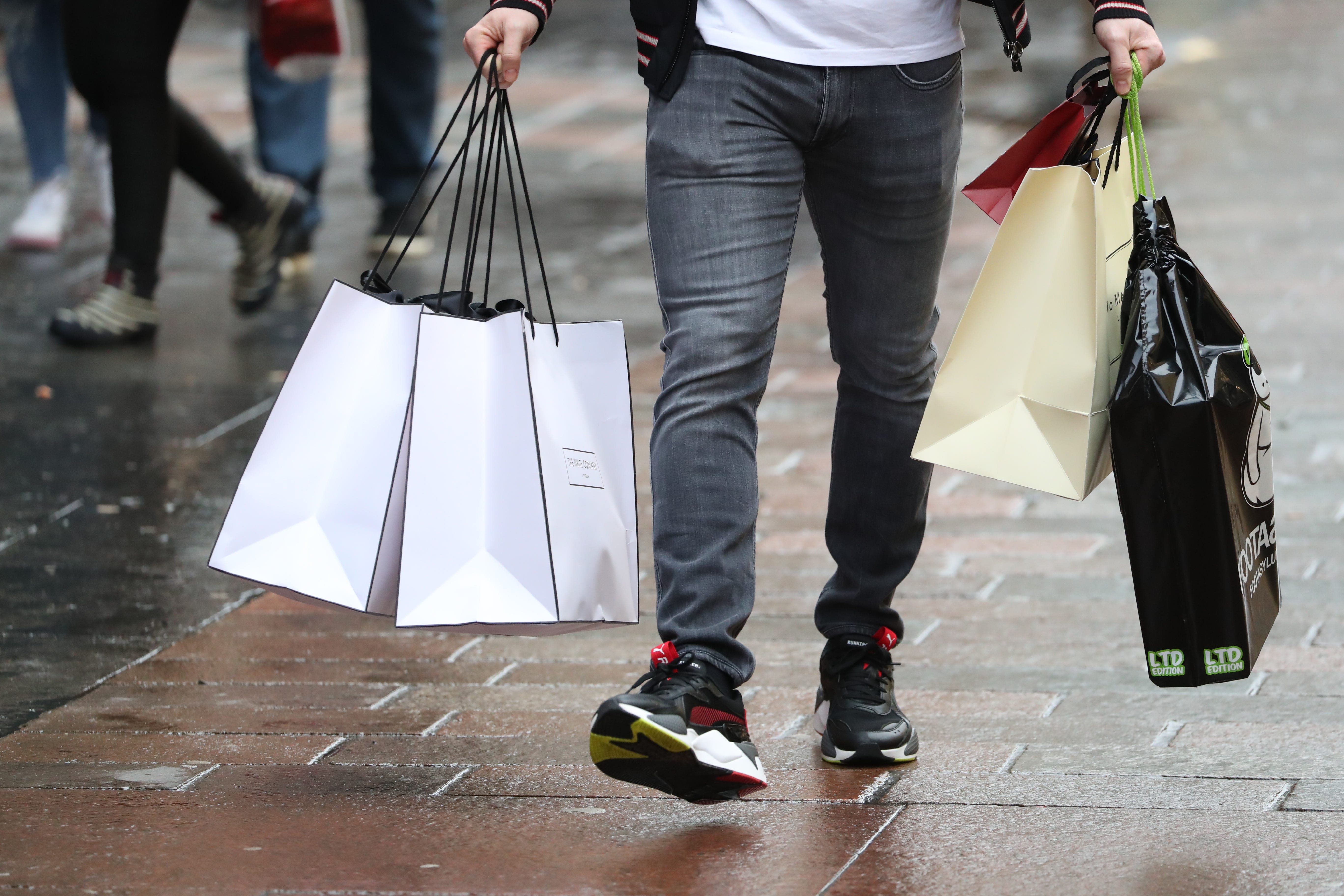Consumer optimism over economy falls for first time since February
GfK’s Consumer Confidence Index showed a fall for expectations over the economy, but more optimism over personal finances and ‘big ticket’ puchases.

Your support helps us to tell the story
From reproductive rights to climate change to Big Tech, The Independent is on the ground when the story is developing. Whether it's investigating the financials of Elon Musk's pro-Trump PAC or producing our latest documentary, 'The A Word', which shines a light on the American women fighting for reproductive rights, we know how important it is to parse out the facts from the messaging.
At such a critical moment in US history, we need reporters on the ground. Your donation allows us to keep sending journalists to speak to both sides of the story.
The Independent is trusted by Americans across the entire political spectrum. And unlike many other quality news outlets, we choose not to lock Americans out of our reporting and analysis with paywalls. We believe quality journalism should be available to everyone, paid for by those who can afford it.
Your support makes all the difference.Consumer confidence in the prospects for Britain’s economy over the next year has fallen for the first time in six months, according to new figures.
But British consumers are feeling more optimistic over their personal finances as mortgage rates have begun to come down following the Bank of England’s interest rate cut at the start of this month, the report found.
GfK’s long-running Consumer Confidence Index showed a four-point fall since July to minus 15 in August for consumer expectations for the general economic situation over the next 12 months – the first fall since February.
It also revealed a three-point drop in how consumers view the economy over the past year too, at minus 35 points, although both measures showed improvements in optimism against a year ago.
There was a better picture overall, with the wider consumer confidence index holding firm at minus 13 in August – as the first rate cut since March 2020 is set to help take some of the pressure off household finances.
The index found that there are strong personal finance expectations for the coming year with a three-point uptick in this measure since July to plus six.
This is also nine points higher than a year earlier.
GfK’s client strategy director Joe Staton said: “This more positive outlook may be due to a mortgage friendly interest rate cut at the beginning of August – and hopes of more to come.”
And there was hope for retailers that demand for so-called big ticket items may look to increase as the Major Purchase Index recorded a three-point jump since July to minus 13.
Mr Staton said: “The three-point jump in the Major Purchase Index is great news for retailers with more shoppers agreeing that now is a good time to buy big-ticket items.
“The wider point beyond the contrasts is that all the key numbers this month are significantly more encouraging than 12 and 24 months ago.
While there are welcome signs of seasonal summer spending for the retail sector that led to sales growth in July, the upturn was minimal
“But as we move into autumn and winter, how much further will this slow improvement in the mood of the nation run?”
Linda Ellett, UK head of consumer, retail and leisure for KPMG, said: “With greater inflation stability, the first cut to interest rates since 2020, and the election having provided political certainty, consumer confidence is gradually recovering.
“While there are welcome signs of seasonal summer spending for the retail sector that led to sales growth in July, the upturn was minimal.
“Household finances remain hugely variable and overall there is still little evidence to suggest that gradual increases in consumer confidence is yet to lead to a consistent and significant uplift in discretionary spending.”